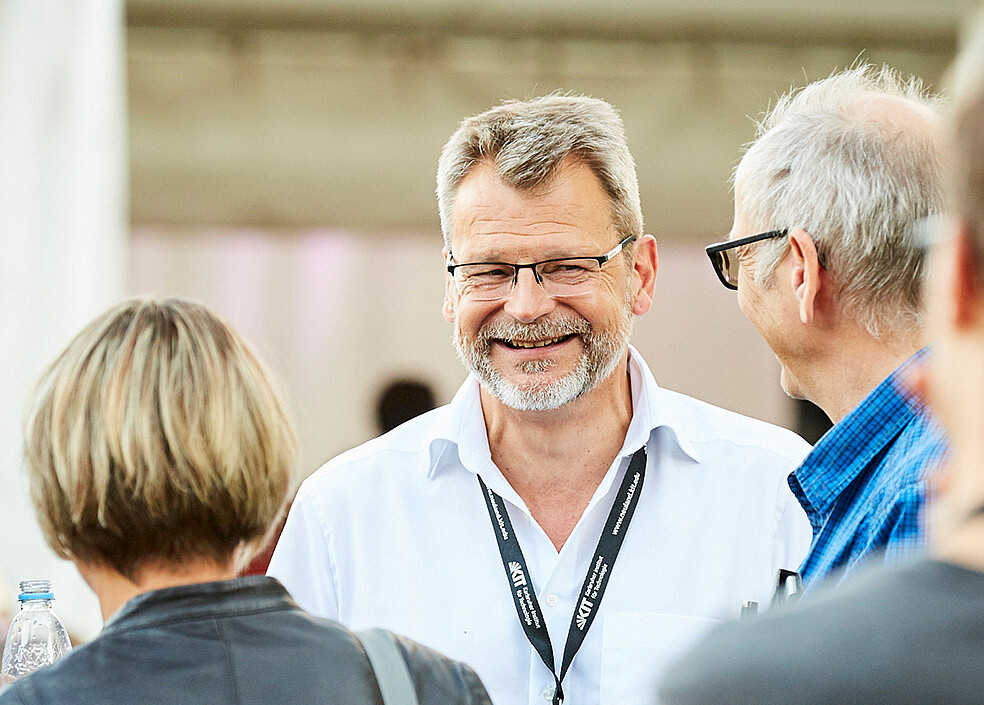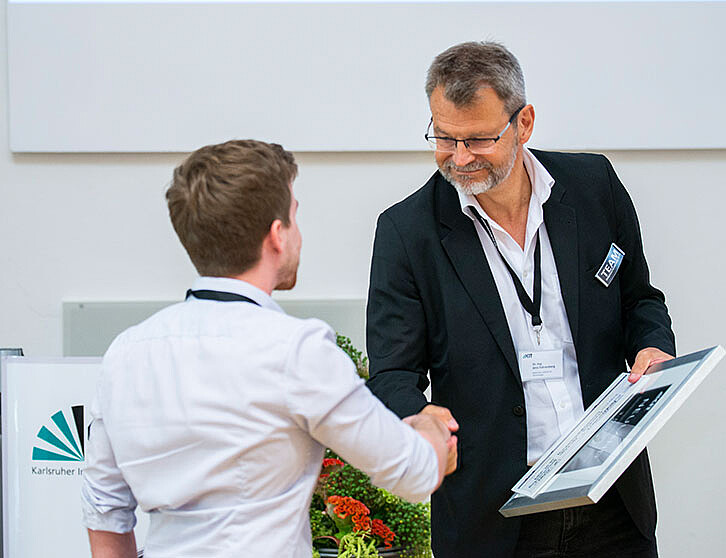Published on February 03, 2021
Professions in technology transfer, today: Head of Innovation and Relations Management
Over the next few months, exciting interviews with team members of the service unit Innovation and Relations Management (IRM) will illuminate how technology transfer takes place at KIT.
We will start with Dr. Jens Fahrenberg, Head of Innovation and Relations Management at KIT. What does the day hold when you lead a large transfer team? What are the demands of this job? Read all this and much more in the interview.

How can one become head of technology transfer?
Jens Fahrenberg: How did I come to the profession? A combination of interest that has grown over the years and a successful internal application in 2002. I studied at KIT as well as earned my doctorate, and during this time I developed a keen interest in the interface with business. It has always been a matter of concern to me that my daily work brings noticeable value.
This was one of the reasons why I switched to science management soon after my doctorate and took responsibility for projects in microsystems technology in which science and industry discussed transfer paths. Here I realized that it was precisely this interface and the interaction with people that were motivating for me. In 2002, I was given the opportunity to take over the management of the then technology transfer department and to develop it further in the direction of modern transfer for society.
What motivates you in your job?
Jens Fahrenberg: A big motivation for me is certainly dealing with people. That's an advantage for me because transfer is also referred to as "peoples business.
People from science and business come together who may have different backgrounds and interests and therefore also speak different "languages". Translation, understanding and trust play a very important role here.
I also consider transfer to be a crucial task: making research results usable, creating added value for business and society. This combination of people and the knowledge of making an important and meaningful contribution motivates me.
„Sometimes I come home in the evening and say to my wife that I feel like an attending physician: You have a lot of short meetings, meet people with complex issues, and have to try to grasp problems quickly, outline solutions, and make good decisions - before the next meeting comes around again.“
Dr. Jens Fahrenberg

What are the requirements of the profession? What should one bring along?
Jens Fahrenberg: That depends on how the transfer department is structured: At KIT, we have a large team consisting of many experts. For me, it is therefore important to have a good basic knowledge in all fields, but then also to involve the experts for concrete decisions. That's why soft skills and a broad general knowledge are certainly an advantage. My technical studies certainly help me to communicate with and understand our scientific "customers" and founders, but also the issues from the business world; I am an electronics engineer by training.
So a science degree is not required?
Jens Fahrenberg: No, it is certainly helpful at KIT because of its scientific focus, but a business degree or newer courses, for example innovation management, are also an advantage. You can't study technology transfer; I think intrinsic motivation and the will to learn hands-on is a good qualification.
What does a typical day look like for you? What exactly does your job involve?
Jens Fahrenberg: My days consist of a colorful bouquet of different transfer activities. I am involved in many topics of our service unit, whether these are strategic decisions in the patent system, in marketing, or in the career service, to name just a few. Therefore, my day is especially characterized by communication, moderation and consulting - within the team, but also at the interface to other organizational units of KIT.
An important part of my day is, of course, also the external representation of KIT. I am involved in many committees, commissions, and projects in which I represent KIT as a representative for the topics of innovation and technology transfer. This means many meetings, or rather video conferences at the moment. Normally, I am on the road a lot because of the various appointments. Sometimes I come home in the evening and say to my wife that I feel like an attending physician: You have a lot of short meetings, meet people with complex issues, and have to try to grasp problems quickly, outline solutions, and make good decisions - before the next meeting comes around again.
What advice would you give to people at other institutions who are just getting into the position?
Jens Fahrenberg: Our own employees are mostly experts in their respective tasks. You should listen and learn a lot, especially at the beginning, because your own role is more that of a generalist who has to consider and moderate many different aspects. Open communication and trust are valuable components of good leadership.
The interview was conducted by Marie Simon.

comments about this article
No Comments